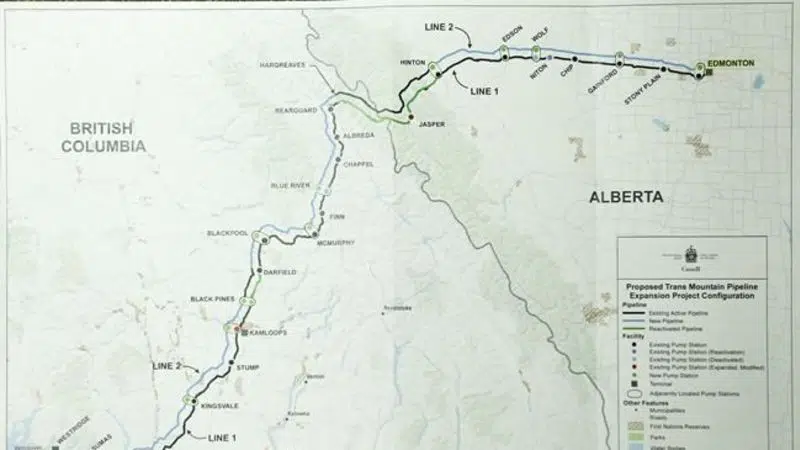
Liberals extend deadline for Trans Mountain pipeline decision to June 18
OTTAWA — The federal government is putting off plans to pass judgment on the reconsidered Trans Mountain pipeline expansion proposal for nearly a month in order to finish its consultations with Indigenous groups, says Natural Resources Minister Amarjeet Sohi.
The deadline is being pushed back — from May 22 to June 18 — on the recommendation of Indigenous communities and former Supreme Court justice Frank Iacobucci, who is advising the government on the consultation process, Sohi said Thursday.
“The government has consistently said that a decision would only be made on the project once we are satisfied that the duty to consult has been met,” he said in a statement.


